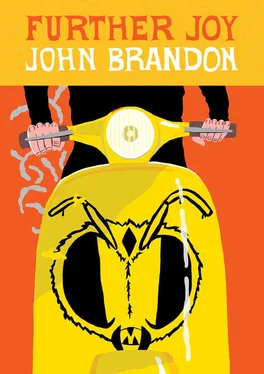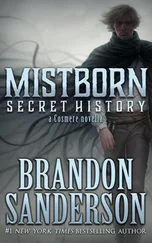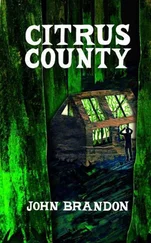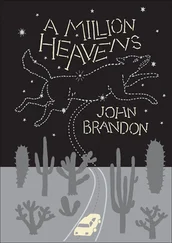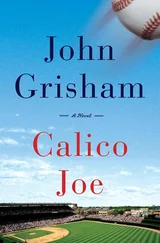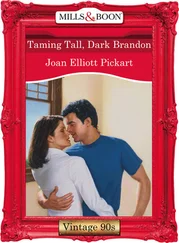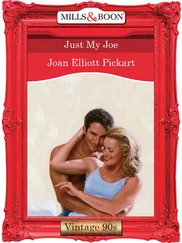She hurried to the closet in her bedroom, plucked the boots from the outlet mall off the floor, and carried them out to Herbie. She felt lucky, competent even. Herbie rubbed the leather on his cheek and sniffed it, just as she had in the store, then he set the boots gingerly aside without trying them on.
“Who’d those things belong to?”
“No one. I bought them as an investment and it paid off.”
“They’ll lose a lot of resale value the second I put them on. That’s the bitch of it.”
Pauline laughed. It sounded strange to her.
“Kind of a forward gift, don’t you think?” Herbie said. “A fellow could get the wrong idea.”
He was flat on his back. He started emptying more stuff out of his pockets — a shiny little fold-up knife, a book of matches, a fifty-dollar bill. He stuck one arm up in the air and started signing what looked like the alphabet.
“I just quit my job,” she said. “Well, I’m in the process of forcing them to fire me. Same difference.”
“Sometimes I wish I had a normal job. It seems like it would help you stay grounded, having a boss and rules. Help a person master their vices. Also sometimes when I’m writing, I need to tell how my character hates their crappy job. I got no concept how that feels. You know, firsthand.”
“Why do you know sign language?”
“People don’t classify it as a foreign language because you don’t produce it in your throat. They don’t consider me bilingual. You believe that shit?”
“There’s no region for it,” Pauline said.
“There’s a people.”
Herbie took off the glasses he was wearing and didn’t put on another pair. He looked more calculating with his face bare. He looked less happy-go-lucky.
“Two people knowing it,” he said. “That makes it a living language.”
He did the sign from the bar again, cupping his temple and then drawing a line to his chin.
“What does that one mean?” Pauline asked.
“That’s an old expression,” he said. “It means nothing is beautiful to the ugly eye. Or something in that ballpark.”
Pauline had been crouching near Herbie, and now she rose and went to her room to change out of her wet clothes. She’d never finished the Goodwill project in her closet. She flicked through the hangers and found an apricot sundress she’d had since high school. She slipped it on and put a brush through her hair. She was perfectly aware that Herbie could be anyone, that whatever he planned to do to Pauline, good or evil, he was going to do. Maybe he’d slaughter her and leave her posing on a high dive. Or maybe he’d get a phone call and leave town and she’d never see him again. Maybe he was going to be the love of her life. That’s how the world gave out prizes and abuse to its women; you had to accept the box before you knew what was in it.
When she came back out, Herbie wasn’t in the living room anymore. Neither were the boots. Pauline held still a moment, and then she could hear something from back in the kitchen — just an alteration in the acoustics at first, and then the distinct clink of cheap blinds banging against a window. It could only be the little window in her back door. When she reached the kitchen it was empty, the door to the balcony swung open, the musty swamp air washing in. She stood where she was and listened. She could hear the soles of the boots scuffing out there on the wood, and then the sound stopped. She couldn’t see Herbie from where she was standing, but something told her that he was peering into Mal’s apartment. She wanted to know what his next move would be. Through the doorway she could see the dense, vine-bound jungle — the gray-brown cypresses with their great trunks and puny limbs, the lusty ferns crowding each other off patches of high ground. She stayed still and quiet for what felt like a long time. If he was going to open Mal’s door she wanted to make sure she could hear it. A plank creaked, and she could feel the tension in her limbs as she held herself motionless. But the silence returned, and stretched out. No other sound came. A new silence, like he wasn’t breathing. Like he’d vanished.
The next thing she heard from the balcony was whistling, faint for a moment and then less so, finding the right inflection. Herbie was whistling something for the birds, a keen, pithy strain that could just as easily have been a warning or a greeting.
Marky Sessions was a slick-fielding second baseman who couldn’t hit a lick. His last season of Little League was winding down, and he missed it already. Judd Farmer, a fat pitcher from Dade City, was overpowering Marky’s team. There’d been whispers of some coaches from the fancy prep school showing up to check Farmer out, but Marky didn’t notice anyone in the stands who fit that description. Same crowd as usual — the players’ siblings, women who owned stores near the diamond, old folks relieved at having a place to go. Nelson Greer was way up in the bleachers, alone like always, huddled in a tan windbreaker. He could somehow eat the same pretzel the entire game. Nelson had been a hotshot financial adviser when he was barely old enough to drink, the toast of Tampa, then he’d gotten busted for some kind of favor-trading that people in that racket did all the time. He’d been a scapegoat. He’d gone to prison for three years, then bought a hopeless villa in the sticks and became a hermit. He only left home for sandwiches and liquor and to watch Little League.
Marky’s team finished off their half of the inning without a hit. He trotted out of the dugout and readied himself at the edge of the infield. He watched his pitcher loop a knuckleball over the batter, watched the ball find its way under the backstop, watched the catcher crawling beneath the bleachers to sniff it out. Marky felt himself losing focus, and did not fight it. He was used to it — this wistful tide that left him feeling rooted into a too-particular spot on earth, a spot where something forgotten but important had occurred, where someone from another century had appealed to the gods or invented a joke. He wished they could go back to the first inning. He wished they could start the whole season over, wished the yolky midday sun would get stuck up in the sky, that the hot breath of summer would never cool.
The ping of the bat snapped him out of it. A pitch had been smoked back at the mound. Marky caught sight of the ball as it glanced off the pitcher’s shin. It was skipping right toward him. He barehanded it, exhaled, and flung it to first for the out.
In the final inning, Marky came up to bat again. The infielders crept in a few steps, making him feel crowded, and a plan occurred to him. He held his bat out over the plate in a check-swing pose and kept it there. He held it as still as he could, and it became clear that he wasn’t going to put it back on his shoulder. The catcher stared up at him quizzically. The umpire spoke but Marky shook him off, provoking Farmer to step off the mound and paw the rosin. Marky held stiff, gazing down fixedly at the glimmering barrel of his bat instead of facing the mound, looking like a mid-swing statue of some anonymous youth sportsman of yore. Farmer let rip a fastball that zipped past Marky’s bat and was called a strike.
“I’m considering this bunting,” the umpire told Marky. “He could roll the ball in and I’d call a strike, if you keep standing like that.”
Marky did not flinch or reset, though his forearms were beginning to tremble. Farmer’s next pitch left his huge hand and chinked off Marky’s wavering, offered bat in the same instant. It took everyone a moment to locate the ball, which had blooped over the drawn-in first baseman and trickled onto the outfield grass. Marky pulled up with a comfortable single and peered at Nelson Greer, hoping for any reaction at all.
Читать дальше
